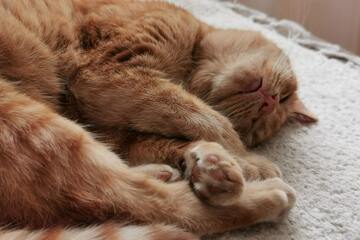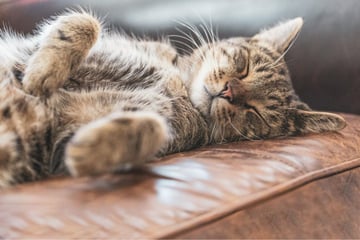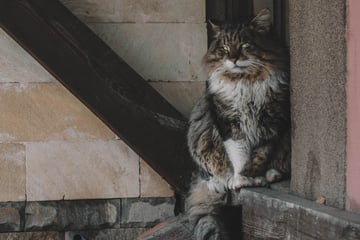Cat anxiety: Symptoms, treatment, and separation anxiety
Cats are full of anxiety, constantly worried about the slightest movement or sound. What's behind cat anxiety, and what symptoms should you look for, and how should you deal with separation anxiety?
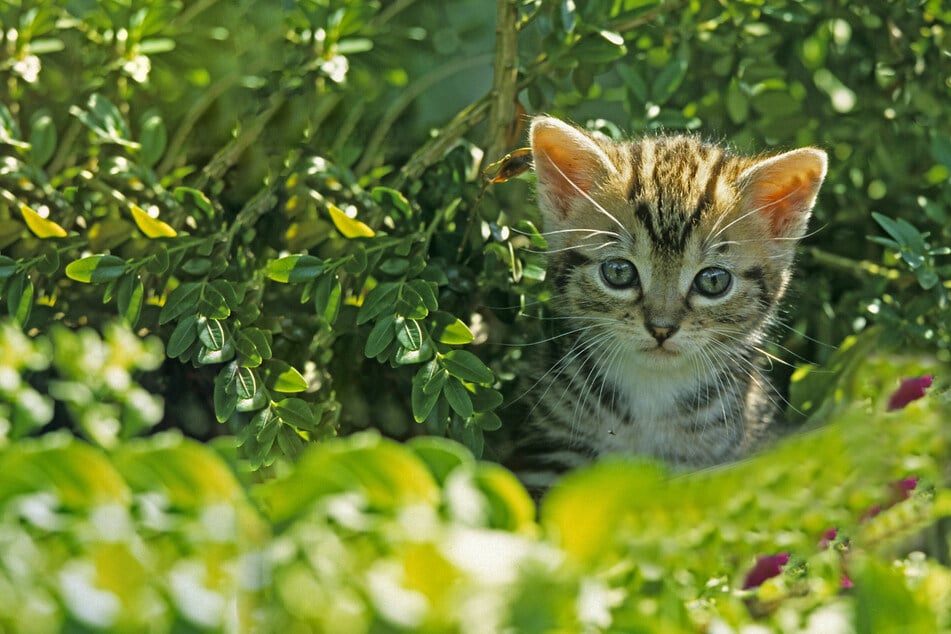
There's a reason why frightened people are often referred to as "scaredy-cats". They are nervous creatures, living on the edge and flinching at the slightest of sounds.
But aren't they domesticated? Doesn't that mean that those instincts have been bred out of them? It turns out that the answer's a little more complicated.
In this cat guide, TAG24 will dive into what lies behind cat anxiety and separation anxiety.
We look into symptoms, the best treatments, and what you can do to improve your cat's life.
What is cat anxiety?
Human anxiety and cat anxiety is relatively similar, though generally triggered by different things. Cats that experience overwhelming nervousness, are extremely jumpy, often nauseous, regularly hide, and constantly seeming to be anticipating danger, are likely to have anxiety.
Cat anxiety can be a seriously debilitating issue, as it will scare our beloved feline friends into staying hidden far too often, will prevent them from eating, and will likely shorten their life-span if chronic. As a result, it is something to take seriously and seek medical advice about.
What is separation anxiety?
Separation anxiety in cats is not dissimilar to separation anxiety in dogs, but with one key difference: It is a much rarer and smaller issue with our furry feline friends. As its name suggests, separation anxiety is when a cat struggles to cope with the absence of its human. This generally happens when a cat owner goes to work or on holidays, so whenever they are away from home for.
Cats don't have as much of an issue with separation anxiety as dogs do. They are generally pretty self-sufficient and will cope just fine without you for a while. That means that you won't need to worry about going to work, and it means that your cat may seem rather absent and disinterested upon your return.
That does not mean that separation anxiety isn't a very real issue, though. If you are regularly away for long periods, with little other than a daily food bowl provided to your kitty, then it is going to get very unhappy very fast.
Cat anxiety symptoms
There are a vast assortment of symptoms that may suggest that your cat is suffering from heightened levels of anxiety. The key thing to note in many of these symptoms is the word "change", or the implied change that they suggest. If your cat's behaviors have altered recently, this is a risk factor.
Here are a number of cat anxiety symptoms to look out for:
- Discomfort and a lack of seeming settled or calm, often through behaviors like pacing, sitting very upright, and rarely sleeping
- Excessive attention-seeking behaviors like meowing and constantly staying close
- A noticeable reduction in sleepiness that isn't paired with more energy
- Constipation, increased fur-balls and vomiting, and other waste-related issues
- Increased hiding and regular disappearances
- Reduced appetite
- Extremely aggressive behavior, increase in violence, and general grumpiness
- An irritable, nervous, or unhappy mood
Keep in mind: This ain't an exhaustive list, and there may be many other symptoms exhibited by different cats. If your kitty has developed some odd behaviors that you're concerned with, go to the vet.

Does my cat have separation anxiety?
The only way to properly diagnose your cat with anxiety is to take it to the veterinarian. If you have noticed any of the symptoms we have described, though, it could be quite likely that your kitty is struggling with some form of anxiety.
In such a case, book an appointment with your veterinarian and, in the meantime, keep your home as calm and friendly as possible. Don't make any major changes to your cat's environment, only approach it when it wants you to, and provide it with as much love, food, and water as you can.
What causes cat anxiety?
The first thing you need to do when looking to solve cat anxiety is to identify what's triggering it. There are a number of issues to look out for, some of which are solvable in quite simple and easy ways.
Here are some possible causes of cat anxiety:
- Separation from its humans or fellow cat friends
- Health and medical issues that will need to be looked at by your veterinarian
- Major environmental changes like moving house, renovations, new furniture, etc.
- Other cats or animals causing trouble, including territorial disputes
- Trauma from domestic violence, injuries, and other causes
This is, again, not an exhaustive list, and there may be a cause that has not been included.
How to calm a cat with anxiety
Once you have figured out whether the issue causing your cat's anxiety is something obvious and solvable, you can decide whether to enact changes yourself, or go to the vet.
For example, if you have just moved house, then it should be obvious why your cat is having trouble. If nothing has changed, though, and your cat is behaving weirdly, a vet visit may be in order.
Here are some ways to calm down an anxious cat:
- Positive reinforcement and exposure: If your cat is reacting to something in their environment or life that is not changeable, positive reinforcement and repeated exposure to the fear can resolve their anxiety.
- Constant company: If your cat is struggling with separation anxiety, it may be time for a friend. That can be difficult at first, as integrating two cats can be tricky, but can help relieve loneliness. You must check with your veterinarian first, though.
- Safe spaces and toys: Make sure that your cat has plenty of toys, high places to perch on top of, lots of time with its humans, and scratching posts around the house.
- Pats, attention, and care: If your cat is fearful and hiding, try to be as kind, caring, and attentive as you can. That doesn't mean overwhelming them with pats. Try to play, give them treats and food, and make them as comfortable as you can.
- Veterinarian: If the issue is more serious, your vet might be the right port of call. They can issue medication and work out more complex solutions.
Cats are cautious: Time is one of the most important factors when handling cat anxiety. If a change in environment is the reason for their fears, positive associations and reinforcements, and time, is your best cause of action.
Cat anxiety medication
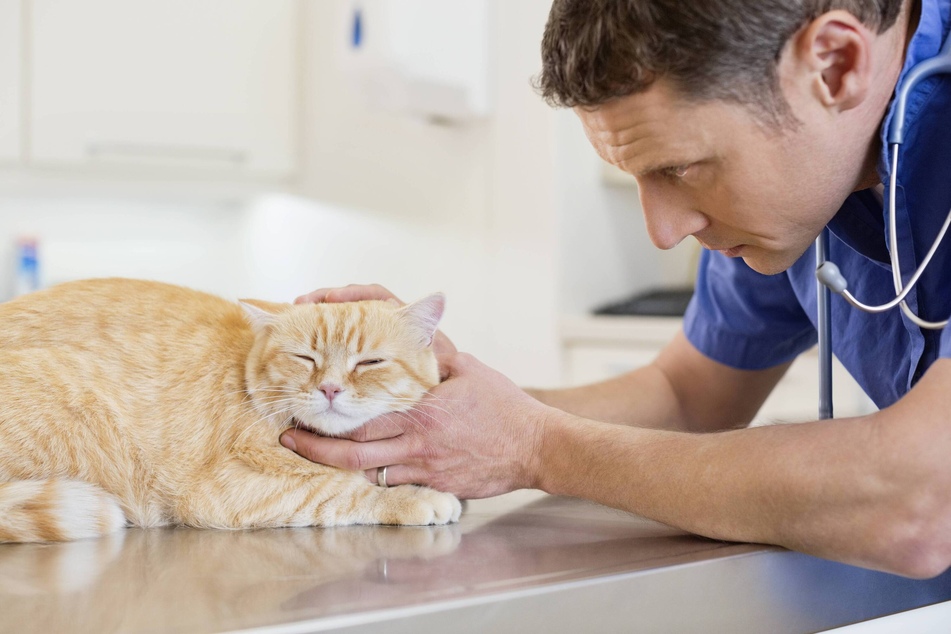
We're not professional veterinarians here at TAG24, so this is where our expertise stops.
We can't recommend specific cat anxiety medications.
There are various medical solutions to the issue of cat anxiety, and things that can be done to provide your pet with some relief. If you speak with your local veterinarian and have them do a full check-up, they'll be able to help you.
Helping a cat with anxiety will improve its health and wellbeing
Anxious cats don't just misbehave, they'll do reckless things and will have a miserable life. You want to improve their anxiety by identifying what is causing it and then taking the necessary steps. If you are seriously concerned, though, then the vet should always be called.
By doing this, you will not only improve your cat's mental health, but its physical safety and health, it's feeling of security, and your relationship with it as well. In other words – don't ignore cat anxiety, it's serious business!
Cover photo: Imago / Blickwinkel
